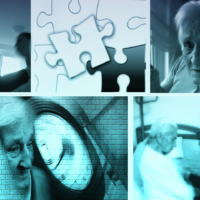
Eating problems with Dementia: the art of eating
There is so much to understand about eating with Dementia. It is important to keep eating as healthily as for long as possible and this also applies to people with Dementia. Read More …
Be aware | Be caring | Be patient | Be understanding

There is so much to understand about eating with Dementia. It is important to keep eating as healthily as for long as possible and this also applies to people with Dementia. Read More …

People with Dementia feel pain, just like everyone else. As Dementia progresses, the person’s language skills may change, making it very difficult for them to communicate with others when they are in pain. This can cause their pain to go undetected and untreated. Pain scale An international team of physicians, nurses, physiotherapists, epidemiologists, and psychologists Read More …

Many people with Dementia do experience changing behaviors. Studies indicate that anywhere from 60% to 90% of people with Dementia develop behavior concerns at some point in their disease. Read More …

Our elderly people can, therefore, be absent or miserable on both Yom HaZikaron and Yom Ha’Atzmaut. But especially on Yom Ha’Atzmaut! Read More …

The preparations for Easter, Passover and the Seder evening (ערב פסח) can be a busy time, but I believe that everyone who has dementia can be supported to enjoy the traditions of the celebration. Read More …

Dementia can also trigger some ethical questions about if it’s appropriate for people with Dementia to have sex. This is because, in an established relationship, the point when someone with memory loss loses the ability to consent to sexual interaction is often difficult to determine. Read More …

For a few years, researchers and developers have developed “game apps” to train our brains. But also to help scientists fight Dementia! The term “game apps” is not unknown to people who are now 40-70 years old. This group, to which I also belong, will easily be able to use the technology against the fight Read More …
It often happens that a patient with dementia asks a random person to do something for him or her. Sometimes they ask to look for a deceased family member or pet. Sometimes they miss a beloved piece of clothing or want to go home. What do you do in such a case? Read More …